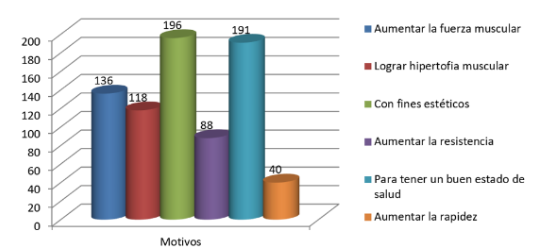Anti-doping education in the training of Physical Culture professionals
Main Article Content
Abstract
The phenomenon of doping has become relevant due to the motivation of athletes, coaches and managers to obtain money and social recognition at any price, regardless of the damage it causes to health. The objective of the present investigation was to diagnose the level of knowledge of students of the Degree in Physical Culture of the University of Matanzas. The research comprised an exploratory, descriptive cross-sectional study. Theoretical and empirical methods were used, especially the survey. The main results show the importance of the role that Physical Culture Graduates can play in the fight against doping. The diagnosis made revealed a low level of knowledge on the subject, in the sample studied, as well as its scarce treatment in the different subjects that make up the different disciplines of the study plan of the career.
Downloads
Article Details

This work is licensed under a Creative Commons Attribution-NonCommercial 4.0 International License.
Those authors who have publications with this journal, accept the following terms of the license Attribution-NonCommercial 4.0 International (CC BY-NC 4.0):
You are free to:
Share — copy and redistribute the material in any medium or format
Adapt — remix, transform, and build upon the material
The licensor cannot revoke these freedoms as long as you follow the license terms.
Under the following terms:
Attribution — You must give appropriate credit, provide a link to the license, and indicate if changes were made. You may do so in any reasonable manner, but not in any way that suggests the licensor endorses you or your use.
NonCommercial — You may not use the material for commercial purposes.
No additional restrictions — You may not apply legal terms or technological measures that legally restrict others from doing anything the license permits.
Notices:
You do not have to comply with the license for elements of the material in the public domain or where your use is permitted by an applicable exception or limitation.
No warranties are given. The license may not give you all of the permissions necessary for your intended use. For example, other rights such as publicity, privacy, or moral rights may limit how you use the material.
References
Dauval, C. (2019). La educación antidoping desde una perspectiva interdisciplinaria en la carrera de Licenciatura en Cultura Física. https://eventos.ucf.edu.cu/pluginfile.php/32409/mod_folder/content/0/No.%2018.pdf
Estupiñán, L. M. M., Aparicio, L. M., Aparicio, L. M., Piñeiro, S. M., & Cuevas, R. M. (2019). Inyección de aceite en los miembros superiores con fines estéticos. Acta Médica del Centro, 13(4), 541-551. https://www.medigraphic.com/pdfs/medicadelcentro/mec-2019/mec194h.pdf
Fernández Rey, J. E., Rodríguez Jiménez, A., & Fernández Rey, J. E. (2019). Caracterización de la educación del juego limpio de los estudiantes de cultura física. Atlante. Cuadernos de Educación y Desarrollo, 11. https://www.eumed.net/rev/atlante/2019/06/educacion-juego-limpio.html
Medina Martínez, R. A. (2017). Sistema de acciones intersectoriales para la prevención y educación de los estudiantes preuniversitarios practicantes del ejercicio físico ante el uso del dopaje desde la Educación Física. [Tesis de Maestría]. Universidad de Matanzas.Cuba
Nodarse, M., Llanes, Y., & Suarez, S. (2012). El doping en la práctica de ejercicios físicos más allá de la comunidad deportiva.EFDeportes.com, Revista Digital. 17 (168). https://efdeportes.com/efd168/el-doping-en-la-practica-de-ejercicios-fisicos.htm
Nodarse M., Pena, A.M., & Padilla, H. (2009). Diagnóstico del nivel de conocimiento que tienen sobre doping los estudiantes de 4to año (CRA) de la carrera de Cultura Física en Cienfuegos. Pódium, 4(4). http://podium.upr.edu.cu/index.php/podium/article/view/564
Ponte, L.R., Escudero, D., & Ponte, D.L. (2021). Caracterización del Pasaporte Biológico del deportista. Su utilización en la lucha contra el dopaje. http://monografias.umcc.cu/monos/2021/Facultad%20de%20CCF/monos21302
Puchades, M. & Molina, P. (2020). Attitudes Towards Doping among Sport Sciences Students. Apunts. Educación Física y Deportes, 14, 1-7. https://doi.org/10.5672/apunts.2014-0983.es.(2020/2).140.01
Porto Álvarez, R. F., Álvarez Núñez, R., Pérez Quintero, M., & Hernández Yagudin, R. (2013). Consecuencias del seudofisiculturismo en adolescentes. Revista Cubana de Ortopedia y Traumatología, 27(1), 99-108. http://scielo.sld.cu/scielo.php?pid=S0864-215X2013000100010&script=sci_abstract
Ruiz-Rico Ruiz, G.J.,Zagalaz Sánchez, M.L., Zurita Ortega, F., Castro Sánchez, M., Chacón Cuberos, R., &Cachón Zagalaz, J. (2017).Actitudes hacia el dopaje según el deporte practicado por los jóvenes. Apunts. Educación Física y Deportes, 130 (4), 29-39. https://raco.cat/index.php/ApuntsEFD/article/view/330016/420759.

